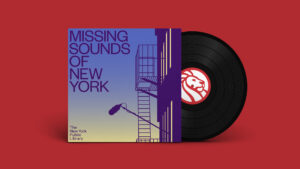Episode 5
- At the beginning of this episode, Krukowski asserts, “the marginal-the rejected-the repressed-is whatever the powerful have decided is of no use at the moment.” What does he mean by this statement? He goes on to ask, “But might it [the marginal-the rejected-the repressed] not be a key to alternate approaches-to art, to society-to power itself?” (“Marginalized” is an adjective that describes a person, group, or concept that is treated as insignificant or peripheral.) Krukowski mean by his statement the old records that left and no one is looking for it, so the powerful decide to ignore and leave behind and not even mention, the powerful here is the online big company that control the market and decide which is important and interesting and which to ignore and not even mention. Marginal records or the rejected records might be from our history and its important that we go back to our history to understand our future. culture without history like a car without wheels, they might be the key of changing many approaches such as art, society and even the power itself through lifting them up fromthe shadows to the lights and from the ground to top of the mountains so then their good effort will be seen to everyone.
- How are the music listening experiences enabled by Forced Exposure different from those that Paul Lamere is working on with platforms like Spotify? You have to scroll through millions of songs with Forced Exposure to figure out what you want to be playing, but you just have to hit the play button at Paul Lamere ‘s platforms, like Spotify, and that’s the correct song for you, based on your contexts, your mood, where you are, or what you’re doing, without you having to think about it.
3. What distinctions does Krukowski draw between being “surprised” by music and “discovering” music? What are the differences between these experiences and according to Krukowski, why are they important?
Being surprised in music means that you will hear something that you have never expect at all , but discovering in music means that you are looking for a specific type of music, and surprise is not the same as “discover.” Since a huge digital corporation, eager to engage every one of us and as much of our time as possible with their product, surprise is not really a helpful thing. Music recommendation services like
Spotify wants to give us the music we probably like. At least enough to let it keep on playing.Which is not something that sounds like nothing we’ve ever heard before. That could be the best thing we’ve ever heard. This is contradicts with Forced Exposure ,where you might have the worst experience ever in listening to music which you would click away from, before any ad tracker had the chance to tally your attention. Knowing this relation is very crucial to those music corporations in the world since they want to keep our attention — or at least, keeping us engaged inside their program, which is at the moment the goal of some of the most powerful corporations in the world. And through this goal, they are replacing the freedom and chaos of the internet at large, with the control and predictability of their programs.
Episode 6
1. According to Krukowski, what is noise? What is signal? Why are these distinctions important?
noise : it’s every-thing that you’re hearing, the background noise that you may not be paying attention to. signle is the sound that we want to hear among all other sounds which are noises. the different between them are important to understand because In a recording studio, microphones open up a rich field of sound, just as Dr. Quesnel describes for our ears. But instead of our brain, it’s then up to an audio engineer to decide what in that is signal, and what is noise—maximizing one, and minimizing the other.
2. What central idea about noise does this episode convey? Why is it significant?
the main idea in this episode is about signle and noise and how is important in a recording studio to maximizing the sound wich is the signle and minimizing the noise so the when we hear the music or the new record we can hear the signle clear and the sound smooth and there will be no noise.
3. How does this episode relate to other episodes?
ways oh hearing is about how digital devices and technology changed our live and change from using analog to using digital in music industry. technlogh has made a revolution in music and made recording look very easy and way better comparing to analog ways. so noise and signle episode is related to the other episode because its the step that make sounds clear and audio engineering using technology to cut as mush noise from the signle so they make a record very clear and pure.



